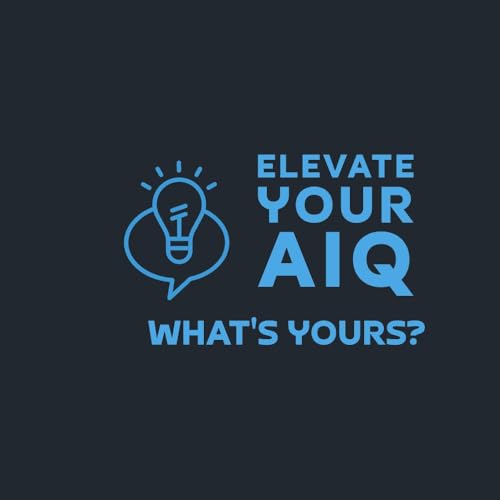Bob Pulver talks with Dan Riley, CEO and Co-founder of RADICL, about reshaping work through connection, trust, and clarity. From his roots as a punk rock musician to building Modern Survey and RADICL, Dan shares how creativity, curiosity, and courage fuel his leadership philosophy. Together, they explore the balance between human imperfection and technological advancement, why “high tech” must still serve human needs, and how organizations can build cultures that learn, listen, and adapt. The discussion spans themes of AI strategy, responsible design, employee listening, and the enduring value of genuine human connection. KeywordsDan Riley, RADICL, Modern Survey, Aon, employee listening, people analytics, connection, trust, AI ethics, human-AI collaboration, imperfection, curiosity, creativity, collective intelligence, organizational network analysis, people analytics world, Unleash, Transform, learning culture, human connection, responsible AI Takeaways Imperfection is a defining strength of humanity — and the source of creativity and innovation. The best technology solves real human problems in the flow of work, not just productivity gaps. AI is a mirror, amplifying human intent and behavior; if we lead with empathy and ethics, AI learns from that. Clarity, communication, and transparency are critical to avoiding “AI chaos” inside organizations. Continuous listening and connection are the new foundations for engagement and trust. Curiosity and conversation are essential skills for navigating the fast-moving future of work. The most effective teams balance diverse strengths rather than relying solely on “rock stars.” True progress happens when we keep the human conversation going — across roles, hierarchies, and perspectives. Quotes “I define myself as an artist first — a musician, filmmaker, who randomly fell into HR and tech.” “The most beautiful part about being human is that we’re imperfect — that’s where the best ideas come from.” “AI doesn’t fix our flaws; it amplifies them. It’s a mirror of how we show up.” “For technology to work, it has to be solving a human problem in the flow, not just adding to the stack.” “It’s okay to say, ‘We don’t have it all figured out yet’ — just be transparent about where you are.” “You’ll never regret having a conversation about something important.” Chapters 00:03 – Welcome and Dan’s background: from punk rock to HR tech 01:45 – Founding Modern Survey and RADICL’s mission around trust and impact 05:14 – The changing landscape of work 06:42 – Highlights from People Analytics World, Transform, and Unleash 09:50 – Rise of human connection as the dominant theme in work tech 13:10 – Clarity, communication, and the need for an AI strategy 16:19 – Productivity, balance, and reinvesting in people 18:36 – The risk of over-automation and the value of learning 22:16 – Teaching curiosity and critical thinking in an AI world 27:25 – Why open conversations about AI matter more than ever 33:51 – Employee listening, continuous dialogue, and the evolution of engagement 37:22 – How AI enhances understanding and connection between teams 40:06 – Organizational network analysis and adaptive learning 43:21 – Connection, mentorship, and collective intelligence 46:03 – AI as a mirror: amplification of human behavior and bias 48:36 – Building balanced, imperfect, and effective teams 51:48 – Tools, curiosity, and the limits of generative AI 55:35 – Trusting your judgment and maintaining critical thinking 56:34 – Staying human amid synthetic connection 57:45 – Closing reflections and the call for ongoing dialogue Dan Riley: https://www.linkedin.com/in/dan-riley-57b9431 RADICL: http://www.radiclwork.com For advisory work and marketing inquiries: Bob Pulver: https://linkedin.com/in/bobpulver Elevate Your AIQ: https://elevateyouraiq.com Substack: https://elevateyouraiq.substack.com
Voir plus
Voir moins
 57 min
57 min Dec 12 20251 h et 10 min
Dec 12 20251 h et 10 min 55 min
55 min 1 h et 3 min
1 h et 3 min Nov 21 202555 min
Nov 21 202555 min Nov 14 202557 min
Nov 14 202557 min Nov 7 20251 h et 3 min
Nov 7 20251 h et 3 min Oct 31 202545 min
Oct 31 202545 min
